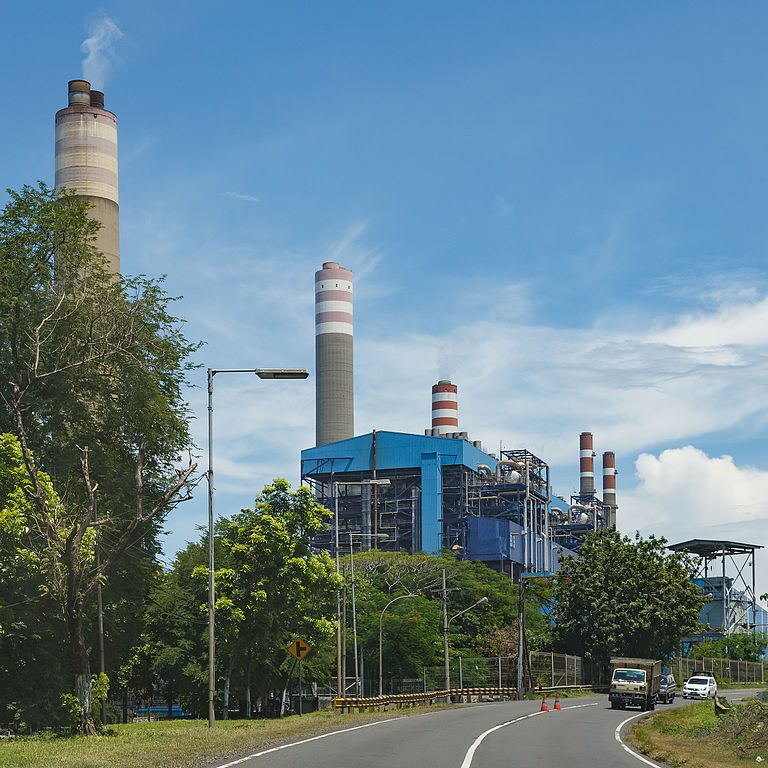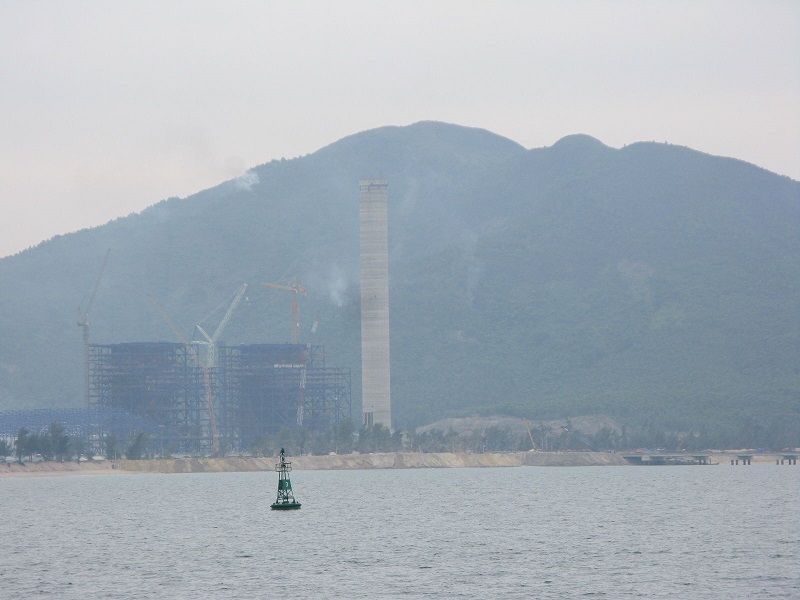ARCHIVED CONTENT
This content is no longer being updated.
Singapore’s banks are funding a huge problem
January 2018
If the world is to have an 80% chance of meeting its agreed goal of keeping global warming to below 2ºC, then 80% of fossil fuels worldwide must remain in the ground according to independent financial think tank Carbon Tracker. Yet despite pledges to take action on climate change, banks continue to fund the expansion of the fossil fuel industry.
Failure to keep a lid on global warming would be an environmental and humanitarian disaster, but the economic impact would also be enormous.
As Mark Carney, Governor of the Bank of England has repeatedly warned, investors face “potentially huge” losses from climate change action that could make vast reserves of oil, coal and gas “literally unburnable”.
As the world moves to limit global warming, trillions of dollars of fossil fuel assets are at risk in the impending ‘carbon bubble’ according to Carbon Tracker’s founder Mark Campanale.
Singapore’s banks are funding a huge problem
Singapore’s 3 major banks – Oversea-Chinese Banking Corporation (OCBC), DBS Bank and United Overseas Bank (UOB) – are highly active overseas project finance investors in Asia Pacific and globally. Yet these banks seem to fly under the radar of studies examining dirty lending practices, lack of climate policy and failure to adopt industry standards such as the Equator Principles.
Market Forces analysed data from IJGlobal, a leading online energy and infrastructure finance data service, relating to OCBC, DBS Bank and UOB’s lending to coal companies and projects since 2012.
22 deals worth US$2.41 billion were included in the analysis. 13 deals for coal-fired power stations totalled $1,409 million, while five coal port deals were worth $630 million and four focused on coal mining worth $372 million.

Paiton Power Station, Indonesia. Funded by DBS.
(Photo by CEphoto, Uwe Aranas)
OCBC is Singapore’s dirtiest bank
OCBC has participated in 14 coal deals since 2012, lending $1,142 million:
- The largest loan ($195 million) was for the 2000MW Tanjung Jati B Coal-Fired Power Plant in Indonesia in 2017.
- The second largest involved a $176 million loan for the 1000MW Tanjung Bin Power Plant in Malaysia in 2012.
DBS Bank participated in 13 deals worth $1,007 million since 2012, five of which also involved OCBC:
- DBS Bank’s biggest loan was for the acquisition of Australia’s Port of Newcastle in 2014 for $160 million.
- This was followed by $140 million for the construction of the 1900MW Central Java Coal-Fired Power Plant in Indonesia in 2016.
United Overseas Bank participated in five deals worth $262 million since 2012, all of which involved at least one other Singaporean bank:
- UOB’s largest loan was US$92 million for the 2014 refinancing of the Newcastle Coal Export Terminal Expansion in Australia.
- In second place was a $54 million 2012 refinancing for Harum Energy, a top Indonesian coal mining company.
Of all the deals, the vast majority (19) consisted of finance for coal projects (known as project finance) whilst three financed companies (corporate finance).
- Over half (12) of all deals were for companies and projects in Australia, accounting for $1.13 billion (49%) of overall lending.
- Six were for projects and companies in Indonesia, accounting for $874 million (38%).
- There were two deals in Vietnam ($187 million), while single deals occurred in Malaysia ($176 million) and the Philippines ($44 million).
Eight deals consisted of newly established lending for the construction of seven coal-fired power projects. Ten deals were ‘refinancings’, whereby lenders renew existing debt for companies or projects that have typically already been built or are under construction. Three deals financed acquisitions of coal assets and one was additional debt to an existing project.
More dirty deals in the pipeline
The World Bank president, Jim Yong Kim, remarked last year that “if Vietnam goes forward with 40 GW of coal, if the entire region implements the coal-based plans right now, I think we are finished.”
Despite this, DBS Bank has been named as part of a syndicate in three 1200MW coal-fired power plants in Vietnam – Nam Dinh 1, Nghi Son 2, and Vung Ang 2. OCBC is also involved in Nghi Son 2. Unless DBS moves to withdraw from these deals or institute a policy to restrict lending to coal power stations, as many other banks have around the world, it could find itself at the head of Singapore’s dirtiest banks.
DBS is also a financial adviser for a number of planned coal-fired plants in Indonesia including the Jawa-6 (2000MW), Jawa-9 (1000MW) and Jawa-10 (1000MW) plants.

Vung Ang 1 power station, Vietnam. DBS is involved in funding the 1,200MW Vung Ang 2 expansion.
Why are Singapore’s banks fuelling the fire?
“Climate change is among the most pressing challenges of our time, and one that needs to be tackled urgently if we are to preserve the habitability of our planet. As a bank focused on ensuring sustainable development across Asia, we believe it is imperative that we contribute towards the fight against global warming by examining and reducing our own environmental footprint.”
-Mike Power, Chief Operating Officer for Technology and Operations, DBS Bank, and co-chair of the bank’s Sustainability Council
DBS in particular is outspoken on the need to take climate action. Unfortunately its rhetoric is not matched by action. The reality is that Singaporean banks’ policies are significantly weaker than their European and US peers.
Analysis of commercial banks funding the expansion of coal-fired power globally, published in December by BankTrack, scored the coal power lending policies of 42 banks. The report did not consider DBS Bank, OCBC or United Overseas Bank so BankTrack retrospectively scored these institutions at Market Forces’ request. BankTrack found that, compared to their contemporaries in Europe and the US, the Singapore banks performed poorly. Singapore’s banks scored ‘D’ or ‘D-’ compared with mostly ‘B’ and ‘C’ grades for European and US banks (see scores below).
| Bank | Country | Coal power policy rating |
|---|---|---|
| Singapore banks | ||
| DBS Bank | Singapore | D |
| OCBC Bank | Singapore | D- |
| United Overseas Bank | Singapore | D- |
| European banks | ||
| ABN AMRO | The Netherlands | B |
| BNP Paribas | France | B |
| ING | The Netherlands | B |
| Natixis | France | B |
| Société Générale | France | B |
| Crédit Agricole | France | B- |
| Deutsche Bank | Germany | C+ |
| Barclays | United Kingdom | C |
| Crédit Suisse | Switzerland | C |
| HSBC | United Kingdom | C |
| UBS | Switzerland | C |
| RBS | United KIngdom | C- |
| Standard Chartered | United Kingdom | C- |
| UniCredit | Italy | D+ |
| US banks | ||
| Goldman Sachs | United States | C |
| JPMorgan Chase | United States | C |
| Morgan Stanley | United States | C |
| Citi | United States | C- |
| Bank of America | United States | D |
| Wells Fargo | United States | D |
A ‘D’ score indicates the bank employs ‘enhanced due diligence that applies to coal power,’ whereas ‘D-’ indicates a ‘general due diligence commitment’.
In stark comparison to the Singaporean banks, BankTrack also found that 14 banks globally, all from the US and Europe, have ended direct financing of new coal plants worldwide.
Additionally, unlike 92 of their global peers from 37 countries, none of the Singapore banks have adopted the Equator Principles, which provide a minimum standard for due diligence in financing projects such as coal power plants.
Conclusion
Whilst it must be noted that renewable investments and pledges from Singaporean banks are a positive sign, the reality is that unless funding and support of polluting energy sources such as coal declines rapidly, this will not keep the world below two degrees of warming.
Banks justify coal investments by rightly pointing out that communities need energy. However, with a rapidly improving economic outlook for wind and solar, including renewable energy already being cheaper than coal in many countries, investments in coal power serve little more than the companies seeking to build their old, dirty technology.
Coal power also delivers costly ‘externalities’. In terms of air pollution alone, peer reviewed research from Harvard University published in January estimated that, by 2030, pollution related to coal will contribute to 19,220 deaths annually in Vietnam.
Singapore positions itself as a global leader in terms of sustainability, yet its banks remain wedded to outdated, dirty energy. It’s time for change.
